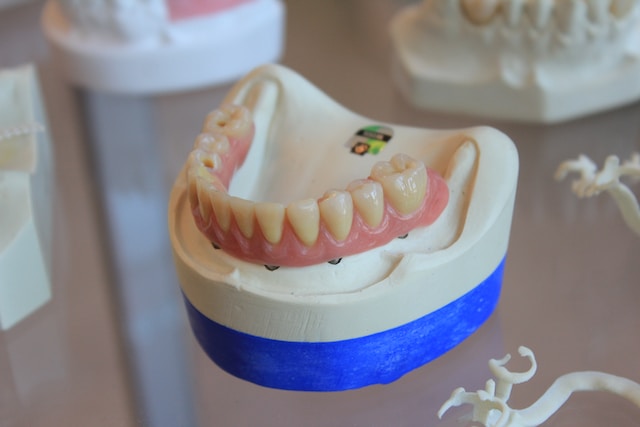Tooth loss can occur for many reasons, including decay, injury, or gum disease. Dentures are dental prosthetics that look and function similarly to natural teeth and gums. As a result, dentures are often an ideal treatment for patients with significant or total tooth loss.
Don’t let tooth loss go untreated. Replace missing teeth and repair your smile with Dr. Gary Horblitt in Fairfield, CT. All patients (including new patients!) can easily request appointments at (203) 335-1011 now.
When it comes to dentures, patients have more options today than ever before. While this is a positive thing, it can make the decision process a little more difficult. Dr. Horblitt is here to take a closer look at the different types of dentures so that you can make the best choice for you.
Full Dentures
Full dentures (also known as complete or traditional dentures) are ideal when a patient has lost all of their natural teeth.
Dental professionals customize these removable prosthetics to fit the patient’s mouth perfectly. Typically, these appliances are custom-made so well that they retain their position in the mouth solely by the suction created between the gums and the dentures. However, patients can use denture adhesive for added protection.
Dental professionals can make full dentures from a variety of materials, including acrylic resin, porcelain, or a combination of the two. Dental prosthetics can take some time to get used to, but once they are properly fitted, they can be remarkably comfortable and functional.
Partial Dentures
Partial dentures are used when some natural teeth are still present.
Patients can use these appliances to replace one or several missing teeth, even if they aren’t in a row. Ordinarily, partial prosthetics retain their position in the mouth with the help of metal clasps or precision attachments. This means that most partial dentures are removable.
Dentists can make partial dentures from acrylic resin or a combination of acrylic resin and metal. As a result, they are a long-lasting option to replace sporadically missing teeth
Implant-Supported Dentures
Implant-supported dentures are held in place by dental implants, which are small titanium screws that a dentist inserts into the jawbone. Implants can take between three and nine months to heal. However, they are wildly successful, as they have a five-year survival rate of roughly 98%.
Once the dental implants heal, the denture is then attached to the implants using special connectors. Implant-supported dentures are more stable and secure than traditional dentures and do not require adhesives.
Implant-supported appliances are usually more expensive than other options. However, they offer unmatched comfort, which makes them look and feel more natural than other tooth-replacement options.
Overdentures
Overdentures are similar to implant-supported dentures. However, overdentures retain their position in the mouth with the help of dental implants and natural teeth. Overdentures can provide increased stability and function, making them slightly more comfortable than traditional dentures.
Immediate Dentures
Following tooth extraction, a dentist may use immediate dentures to replace newly-missing teeth. Dentists create these appliances before the teeth are removed, but they are inserted immediately after the extraction.
Denture Dentist in Fairfield, CT
Take charge of your oral health today by exploring dentures with Dr. Gary Horblitt in Fairfield, CT. Patients can request appointments on our website, or they may call (203) 335-1011 for more information and scheduling.

